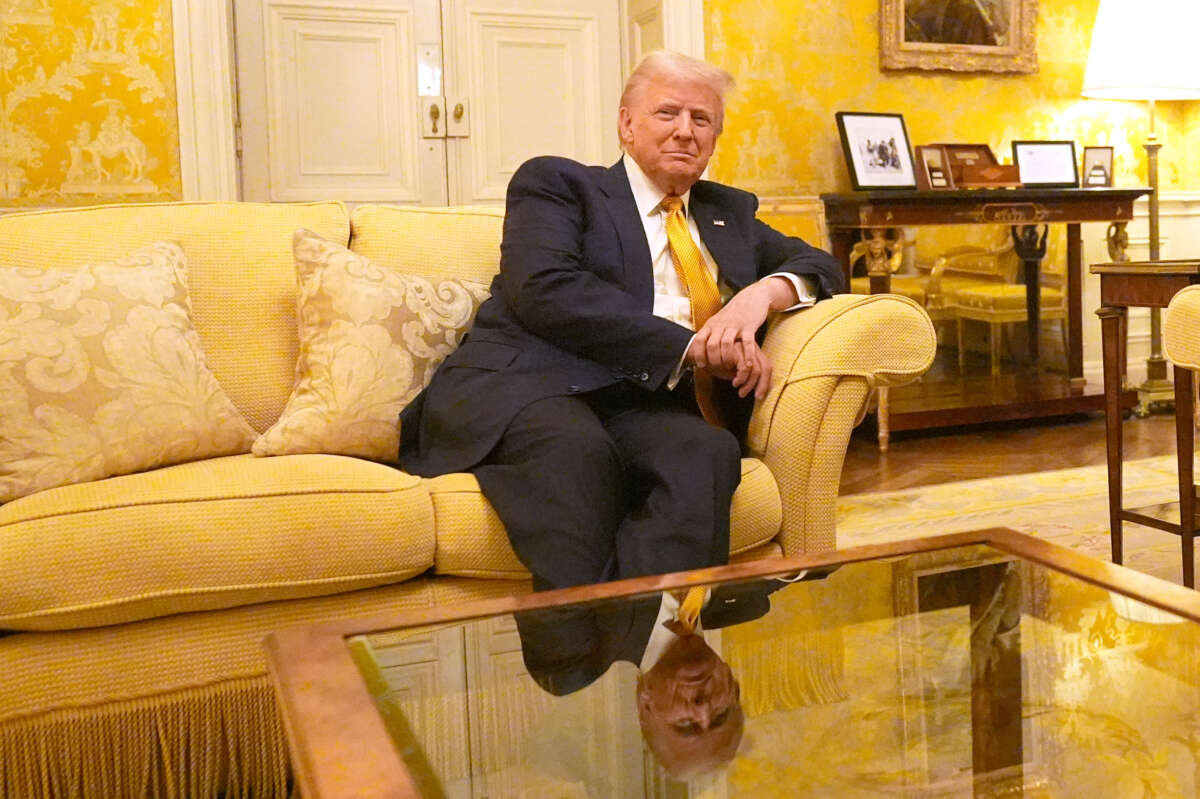Did you know that Truthout is a nonprofit and independently funded by readers like you? If you value what we do, please support our work with a donation.
President-elect Donald Trump took a massive step back from previous claims he’s made on his planned tariffs, stating in an interview over the weekend that he could no longer “guarantee” that costs from tariffs wouldn’t be passed onto consumers.
During the presidential campaign, Trump often touted tariffs as a means of generating revenue for the U.S. without raising taxes directly on American taxpayers. Trump vowed that tariffs wouldn’t create higher costs for consumers, flouting wisdom from economic experts who have repeatedly concluded that tariffs do, in fact, raise prices on goods.
Tariffs are taxes placed on companies that import goods to be sold in the U.S. from another country — economists often regard these as taxes on consumers, however, as companies will pass the costs onto those who buy the products. But Trump wrongly pushed the idea that the countries themselves, not the consumers, would pay the costs of the tariffs.
On Sunday, NBC aired Trump’s appearance on “Meet the Press” with host Kristen Welker. In their discussion on tariffs, the president-elect refused to offer the same assurances he gave on the campaign trail.
“Economists of all stripes say that ultimately consumers pay the price of tariffs,” Welker said, prefacing her question on the subject.
“I don’t believe that,” Trump interjected.
“Can you guarantee American families won’t pay more?” Welker continued.
Trump responded with a shrug, saying he “can’t guarantee anything.”
He then falsely suggested that his track record on tariffs, during his first term in office, showed that they didn’t raise costs.
“We had the greatest economy in the history of our country, and I had a lot of tariffs on a lot of different countries,” Trump said.
Those tariffs, however, did raise costs for consumers. For washing machines, a product that had been decreasing in price for some time prior, costs went up by $86 per unit after Trump’s tariffs were imposed. One study also found that the Trump tariffs overall cost U.S. consumers an extra $1.4 billion in extra spending per month.
In late November, weeks after his presidential election victory, Trump promised to impose steep tariffs on the U.S.’s largest trading partners, including a 25 percent tariff on products imported from Mexico and Canada, and a 10 percent increase of existing tariffs on China. Mexican President Claudia Sheinbaum responded to Trump’s plan by suggesting that it could result in a trade war between the countries.
“One tariff will be followed by another in response,” Sheinbaum said.
Tariffs on Mexico could raise grocery store costs by huge margins, as 69 percent of vegetable imports to the U.S. and 51 percent of fresh fruit imports come from that country alone. Tariffs on Canada could also raise costs on both gas and lumber.
“Tariffs artificially raise the cost of doing business, which depresses overall economic production in the form of lower gross domestic product, artificially higher prices, and fewer goods sold. For the consumer, this means a reduction in purchasing power,” Boise State University political scientist Ross Burkhart told PolitiFact about the matter.
Speaking against the authoritarian crackdown
In the midst of a nationwide attack on civil liberties, Truthout urgently needs your help.
Journalism is a critical tool in the fight against Trump and his extremist agenda. The right wing knows this — that’s why they’ve taken over many legacy media publications.
But we won’t let truth be replaced by propaganda. As the Trump administration works to silence dissent, please support nonprofit independent journalism. Truthout is almost entirely funded by individual giving, so a one-time or monthly donation goes a long way. Click below to sustain our work.
